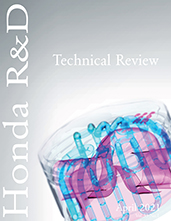Training / Education
The Principles and Applications of Powertrain Controls for the New Energy Vehicles
课程概述 Powertrain controls for NEVs are one of the most complex and highly confidential areas of NEV research and development. This two-day course takes the seemingly complicated field of NEV powertrain controls and summarizes it into a few basic principles. The latest and most popular NEV powertrains are also reviewed to illustrate these principles and the controls strategies used. 对于新能源汽车来说,动力总成控制一直以来都是最复杂的和高度机密的领域之一。在这两天的课程中,我们将把看似复杂的动力总成控制系统总结出几条基本规则,同时,通过对当今其他车型动力控制系统的案例分析,来把这些规则和原理进行融会贯通。

